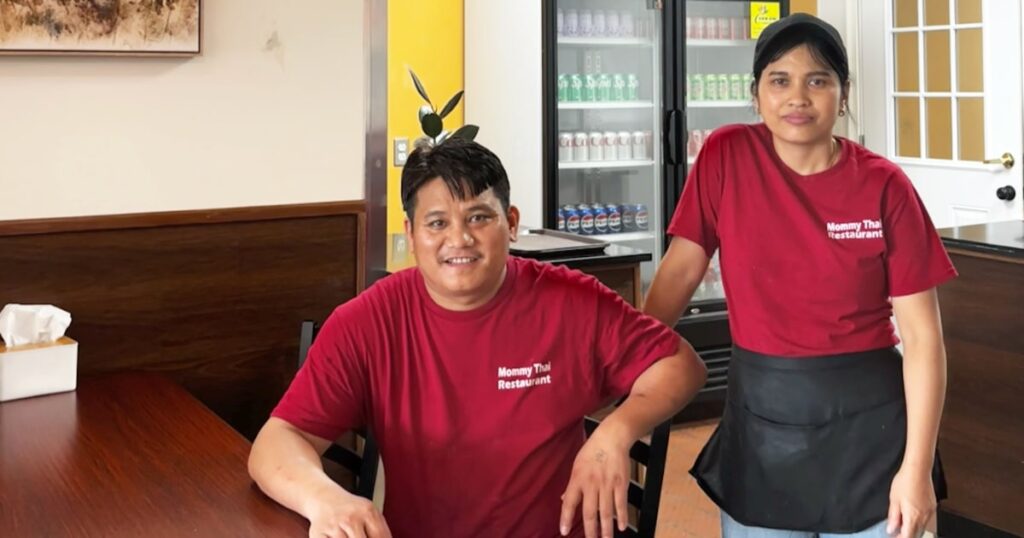
INDIANAPOLIS – The largest Burmese community in the United States is grappling with severe economic and emotional challenges as tariffs and a travel ban take their toll.
Immediate Impact on Local Businesses
Than Hre, the Burmese-born owner of Chin Brothers Restaurant & Grocery in Indianapolis, is witnessing his business’s profit margins shrink dramatically. Over the past year, profits have plummeted from 35% to just 10%, attributed to rising tariffs and shipping costs that have increased the price of rice and Burmese staples by up to 40%.
This economic strain is felt across Indianapolis, home to a Burmese community of 30,000 people, the largest in the nation according to the Burmese American Community Institute. Tariffs on Myanmar imports have soared to 45%, significantly impacting the cost of essential goods like rice and spices.
“It’s hard because we cannot increase the prices, yet if we do, we’re going to lose customers,” said Hre, 48.
Key Details Emerge
The challenges extend beyond economics. The U.S. travel ban on Myanmar is halting family reunifications and student visas, exacerbating the emotional toll on the community. Than Hre’s family-run business relies on his wife and three children, allowing him to avoid layoffs despite the financial strain.
Tha Zi, owner of Mommy Thai, an Asian restaurant in Indianapolis, describes the difficulty of maintaining communication with relatives in Myanmar due to frequent Wi-Fi blackouts amid the ongoing civil war.
“Sometimes the Wi-Fi is cut off for days,” Zi said, expressing concern for her cousin, whose student visa was denied due to the travel ban.
Industry Response
To mitigate losses, businesses like Chin Brothers are reducing inventory orders, purchasing by the box instead of the pallet. Meanwhile, Mommy Thai is cutting back on specialty menu items as costs for meat and noodles rise, reflecting a broader trend of declining consumer spending in the restaurant industry.
Ed Rudisell, owner of Siam Square, another Thai restaurant in Indianapolis, notes that while the travel ban doesn’t directly target Thailand, it affects his predominantly Burmese staff, many of whom are Chin refugees.
“Food costs have gone through the roof,” Rudisell said, highlighting the doubling cost of garlic and the necessity of raising menu prices.
Background Context
The Burmese community in Indianapolis has grown significantly since the U.S. Refugee Resettlement Program prioritized those fleeing religious and ethnic violence, particularly among Chin, Karen, and Rohingya minorities. The city’s affordable housing and job opportunities have made it an attractive destination for secondary migration.
Most Burmese families arrived as refugees escaping military rule and ethnic persecution, with the largest influx occurring in the mid-2000s.
What Comes Next
Looking ahead, the community faces continued uncertainty. The travel ban remains a significant barrier to family reunification and educational opportunities for Burmese nationals. Business owners like Than Hre and Tha Zi are left navigating these challenges while trying to maintain their livelihoods.
“To lock it down and say nobody else is allowed to come in is absolutely inhumane,” Rudisell said, reflecting the broader sentiment of the community.
The future for Indianapolis’s Burmese community hinges on policy changes and economic adjustments that could alleviate some of the current pressures. Until then, resilience and community support remain their strongest assets.







